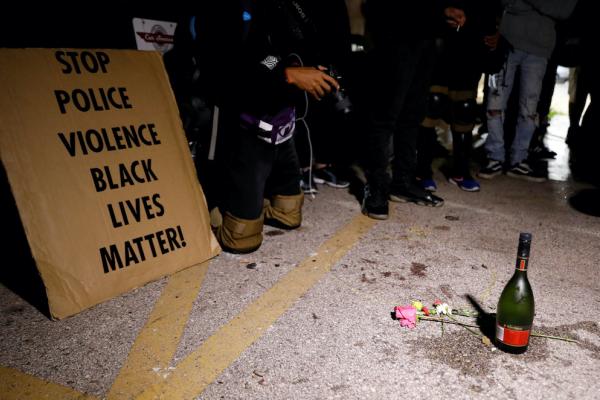Aug 27, 2020
On Sunday, Aug. 23 at Jacob Blake was shot seven times in the back by Kenosha, Wis., police in broad daylight in front of his three sons ages 3, 5, and 8. The bullets damaged Blake’s spinal cord and left him paralyzed. His brutal shooting has not only left his body broken but it has also affected the psyche of his young children — another generation gripped by fear of police.
Read the Full Article

Already a subscriber? Login
